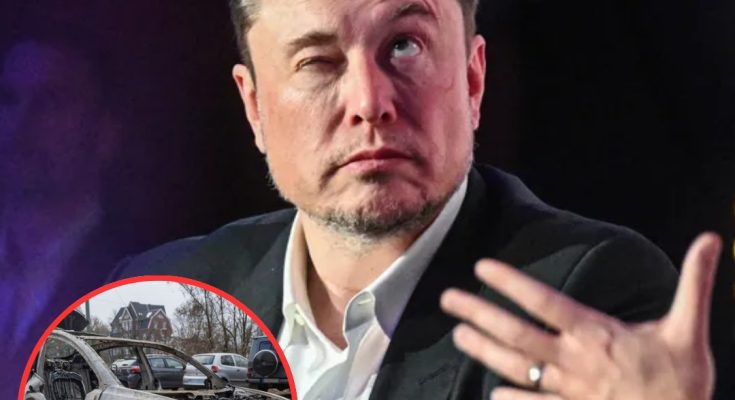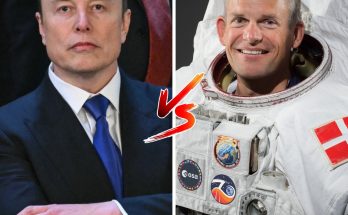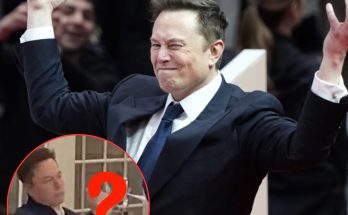Tesla CEO Elon Musk has a message for those targeting the electric car giant: stop the madness. As the company faces a storm of falling sales, stock decline, rising public backlash, and a flurry of legal troubles, Musk is pushing back — not just at critics, but at what he sees as the growing wave of senseless vandalism against Tesla vehicles.“I understand you don’t want to buy our products — but don’t burn them. Don’t be insane anymore,” Musk reportedly told employees during a late-day meeting on March 20th. His frustration was clear.With Tesla vehicles increasingly targeted in acts of vandalism across the U.S. and Europe, Musk is sounding the alarm over what he sees as a politically charged effort to harm the company and its mission.According to a Financial Times report on March 21st, Musk’s comments came during what was described as an “unusual” exchange with Tesla staff. Amid plunging stock prices and weakening global sales, the billionaire entrepreneur sought to bolster internal morale by encouraging employees to hold on to their shares, assuring them that Tesla’s future remains “incredibly bright.”But beyond motivation, there was also a tone of concern — and, in some parts, defiance. Musk, never one to shy away from controversy, addressed the external pressures that have rattled Tesla in recent months.He reminded employees that while headlines may seem apocalyptic, the company still had powerful allies and long-term goals.“If you read the news, it looks like the end of the world,” he said, acknowledging the media’s grim tone while insisting that Tesla will weather the storm.The challenges Tesla faces are not limited to market competition or product recalls. The political spotlight on Musk has intensified dramatically since he became a top adviser to U.S.President Donald Trump and took on a leadership role in the Domestic Optimization of Government Efficiency (DOGE) initiative.His federal influence — and his outspoken views — have made him a lightning rod for criticism, particularly among progressive activists in Europe and the U.S. who are frustrated with recent waves of public sector job cuts in America. Protesters have increasingly directed their ire not only at Musk personally but at the products and employees of Tesla as well.Musk’s growing political role has, for some, transformed Tesla from a tech icon into a controversial symbol. Tesla dealerships and showrooms across Europe and parts of the U.S. have become hotbeds of demonstrations, some of which have turned violent or destructive.Since mid-December 2024, Tesla’s stock has lost 51% of its value, a dramatic fall that has shaken investor confidence and raised serious questions about the company’s near-term stability. The decline has coincided with growing discontent among consumers, particularly those who feel alienated by Musk’s political stances or personal behavior.Perhaps the most symbolic sign of that frustration? A sudden surge in the popularity of a bumper sticker reading, “I bought this before Elon went crazy.”Now one of the most searched-for automotive accessories on Amazon, the sticker captures a cynical cultural shift — from admiration of Musk’s innovation to discomfort with his unpredictability.It’s a shift that Musk seems to recognize and resent. His plea for sanity — “Don’t be insane anymore” — was not just aimed at vandals but at a wider public dialogue that he feels has gone off the rails.If political controversy and public relations headaches weren’t enough, Tesla is also grappling with significant technical setbacks.Just one day before Musk’s meeting with employees, Tesla was forced to issue a massive recall affecting over 46,000 Cybertrucks in the U.S. The problem? External paneling that could detach from the vehicle while in motion — a safety risk that casts doubt on the reliability of one of Tesla’s most anticipated products.At the same time, the company is under legal scrutiny for past claims made by Musk regarding Tesla’s advanced driver-assistance systems. Investigations are reportedly underway into whether the promises made about autonomous driving capabilities have exceeded the actual performance of the software — a potentially costly issue both financially and reputationally.In the middle of this whirlwind, Elon Musk has found a prominent defender: President Donald Trump.On March 21st, Trump condemned the wave of sabotage targeting Tesla vehicles, arguing that the damage inflicted on the company and its customers is “worse than the Capitol riots on January 6, 2021.” In a statement that further escalated tensions, Trump labeled the attackers “terrorists,” suggesting that those involved in destroying Tesla property should face federal consequences.While Trump’s comments are sure to provoke backlash of their own, they also signal just how politically entangled Tesla has become. The company’s trajectory now exists at the intersection of technology, politics, and public perception — a volatile combination that Musk seems determined to control, even as it spirals in unpredictable directions.Musk’s message to employees may have been a mix of reassurance and frustration, but it underlines a crucial reality: Tesla is at a crossroads.On one hand, the company remains a global leader in electric vehicles, with undeniable engineering prowess and ambitious goals for the future. On the other, it is now saddled with an increasingly complex public image, driven as much by Musk’s politics as by Tesla’s products.Whether the storm will pass — and whether Tesla can emerge stronger from it — remains to be seen. But one thing is certain: Elon Musk is not staying silent, and he’s not backing down. With stock prices sliding and tensions flaring, he’s calling out critics, vandals, and even the media with the same fiery intensity that made him a household name.“Don’t be insane anymore,” he warned. But as Tesla’s saga continues, it may take more than words to calm the chaos.
Elon Musk tells Tesla vandals: Stop being crazy, as boycott wave intensifies.



